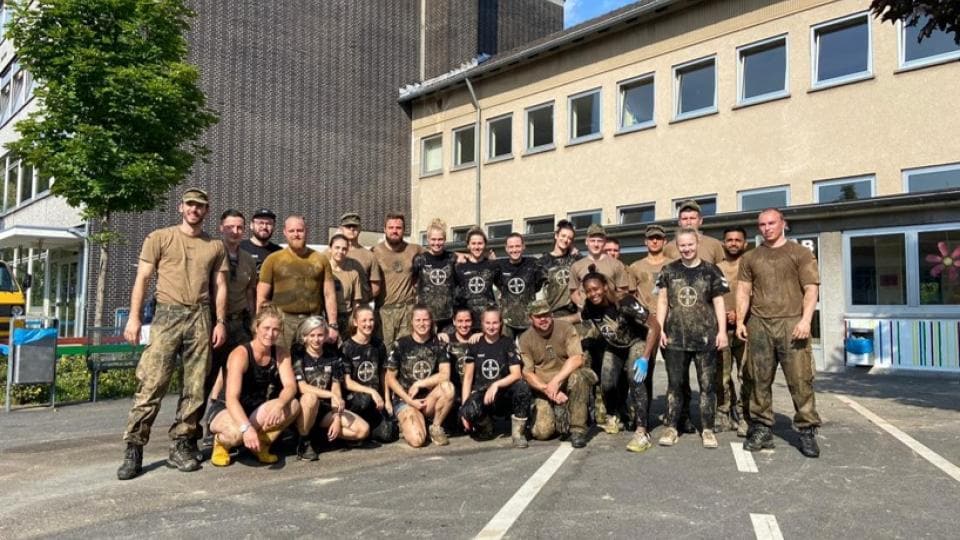How Four Organizations Help Overcome Consequences of the Pandemic

More than two years of the COVID-19 pandemic have left their mark worldwide. Health systems and livelihoods have been put under extreme pressure. While COVID-19 still impacts people all around the world, it particularly affected vulnerable communities - largely people living in low- and middle-income countries. Here are the stories of four organizations that aim to help communities in need by tackling social problems in the areas of health and nutrition.
AgriBioTech: Employment perspectives for youth in South Africa
In South Africa, rural youth and agricultural graduate unemployment is a pressing concern1. The situation has worsened with COVID-19, with many losing their jobs in urban areas and returning to their rural homes. AgriBioTech’s mission is to support the unemployed and promote the development of sustainable rural livelihoods in South Africa. It’s a non-Profit organization with the goal to nurture, mentor, train and incubate agricultural entrepreneurs developing enterprises that work closely together with local small-scale contract grower farmers. So far, more than 42 entrepreneurs have participated. From these, so far, 6 enterprises and 5 co-operatives are being developed further and more than 300 small-scale farmers have been trained in a plant production qualification. The aim is to have 20 enterprises working from the campus supported by 5000 small-scale farmers from the surrounding area. Supported innovations include the production of an energy drink using a sustainably grown local South African plant, a range of healthy fruit and vegetable juices, a “slo-food” catering company (that serves as the campus canteen), livestock pest-repellent products and a wound-healing paste using sustainably grown indigenous plants.
reach52: Access to essential health services in Kenya
During the pandemic, many people in rural areas have been lacking medical care and assistance – including children and expectant mothers, who often require nutritional support such as Iron and folic acid supplementation. To help these women get appropriate access to healthcare products and services, reach52 establishes a local network of trained Agents in Kenya. The ambition of the tech social enterprise is to connect the 52% of the planet lacking access to healthcare to the affordable health products and services they need — enabled by reach52 access, their offline-first Android app. 235 Agents in Kenya will be trained to engage 4,700 residents in an awareness campaign.
IPTI: Connecting smallholder farmers and public-school meals in Brazil
In many countries school meals are the most important meal for children because they may not have much access to food at home. The pandemic has increased the hunger crisis, especially for the most vulnerable communities in Brazil. The non-profit Institution Research Institute for Technology and Innovation (IPTI) aims to promote food security in public schools with their project called NHAM (Project “Yummy”). They are working to develop an app that plans school menus for children while considering their nutritional needs and the local production capacity of small farmers who will then supply the cooks in the schools with the appropriate food. NHAM pilot is being developed in Santa Luzia do Itanhy, one of the poorest cities in Brazil, which is the home of IPTI and work as a global lab for Social Technologies. In the future, the technology is planned to be rollout in further Brazilian municipalities and in other countries.
Neuvo: Access to family planning information for young women in Ethiopia
COVID-19 has disrupted access to family planning services especially in low- and middle-income countries, such as Ethiopia. The results, for many women, has been life-changing: the consequences of rising unintended pregnancy rates are also linked to increased maternal mortality and rising numbers of unsafe abortions2. Neuvo, an impact-led startup, has established an app that provides access to family planning information that makes it possible for women to stay informed even during crisis situations such as the COVID-19 pandemic. The solution gives young girls in Ethiopia an easy go-to place for reliable information in their local language and directions where to find youth friendly services. The pilot app is available and has the potential to benefit 150,000 women in the urban area of Addis Abeba.
Tackling our societal challenges together
At Bayer, we want to contribute to a world where everyone has access to enough food and health care and can live a good life. That is why we support social projects worldwide with renowned partners in the non-for-profit area, and also with visionary social entrepreneurs. We believe in the system-changing power of innovation. To address pandemic-related social problems in the areas of health and nutrition, we initiated the Social Innovation Pitch 2021 where we looked for the most innovative ideas to deal with pandemic-related social problems. The winners have been the four mentioned local innovation projects and they each were supported by Bayer with an additional budget of 25,000 EUR.
Learn more about our activities in Corporate Giving and Social Innovation here.




















